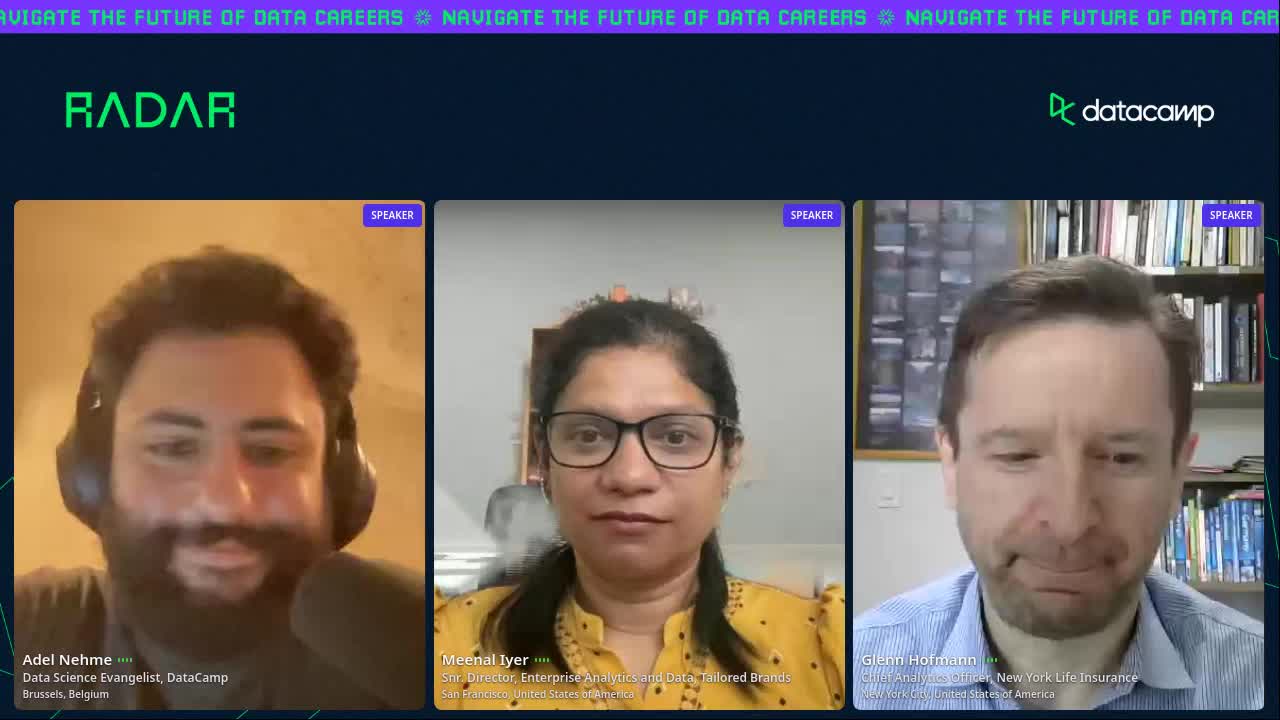Saltar al contenido principalMás información





Altavoces
¿Entrenar a 2 o más personas?
Obtenga acceso de su equipo a la biblioteca completa de DataCamp, con informes centralizados, tareas, proyectos y másRelacionado
webinar
Radar—The Rise of Hybrid Jobs & The Future of Data Careers
Learn how organizations and individuals can adapt to a shifting skills economy.webinar
Radar—Employer Branding for Data Talent When You’re Not a FAANG
HR leaders at top brands outline key strategies for improving employer branding.webinar
Radar—Keynote—Building the Data-Driven Workforce of the Future
The challenges individuals and organizations face in the era of data fluency.webinar
Radar—Hiring and Building High Impact Data Teams
Data leaders at global brands outline methods to build high-impact data teams.webinar
Radar—Building and Scaling Remote Data Teams
Discover how to build and successfully manage remote data teams.webinar
Radar—Ask a Hiring Manager: How to Land a Job in Data Science
Learn the key tactics that can help you stand out from the crowd.Join 5000+ companies and 80% of the Fortune 1000 who use DataCamp to upskill their teams.
Loved by thousands of companies


